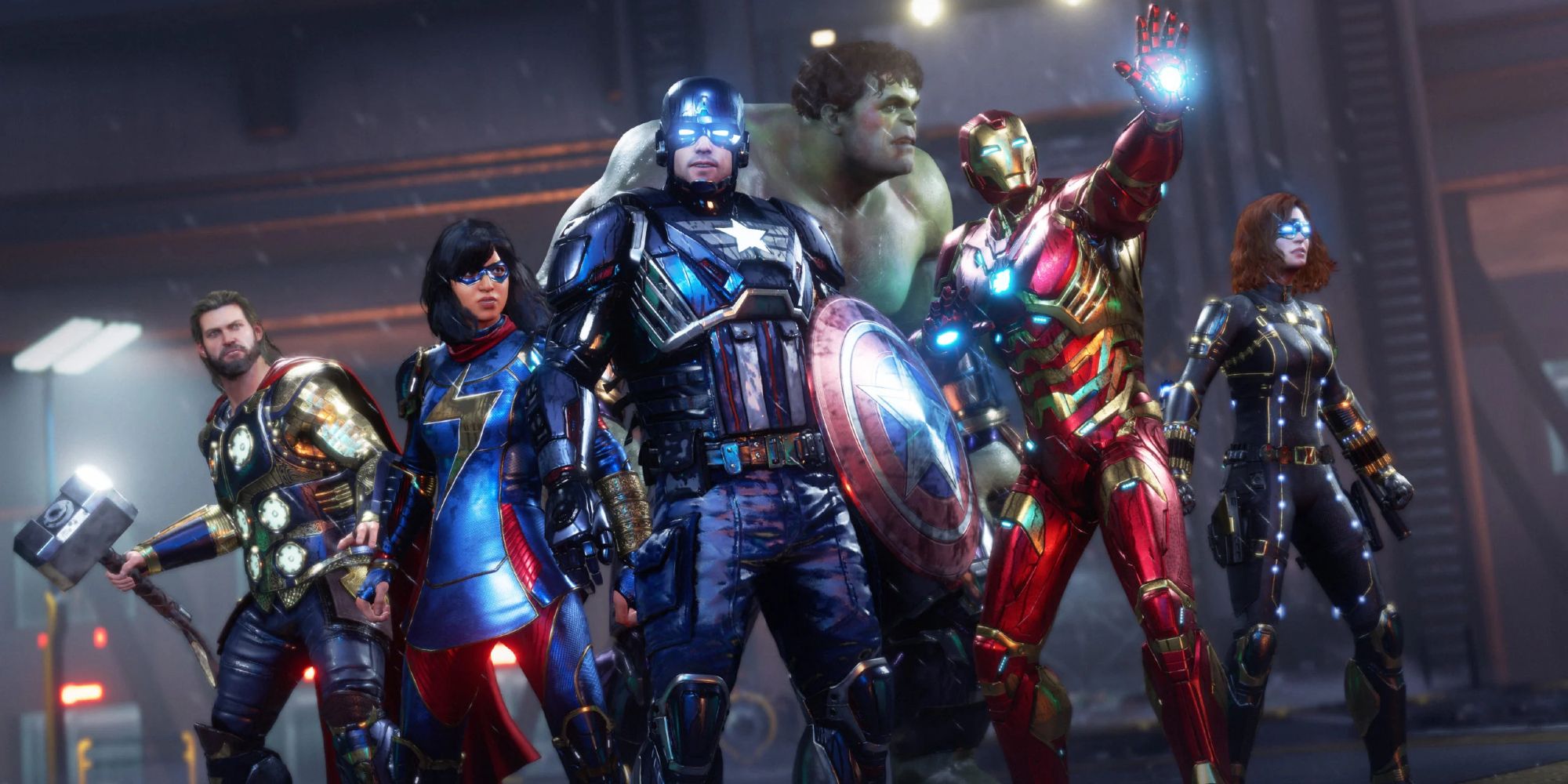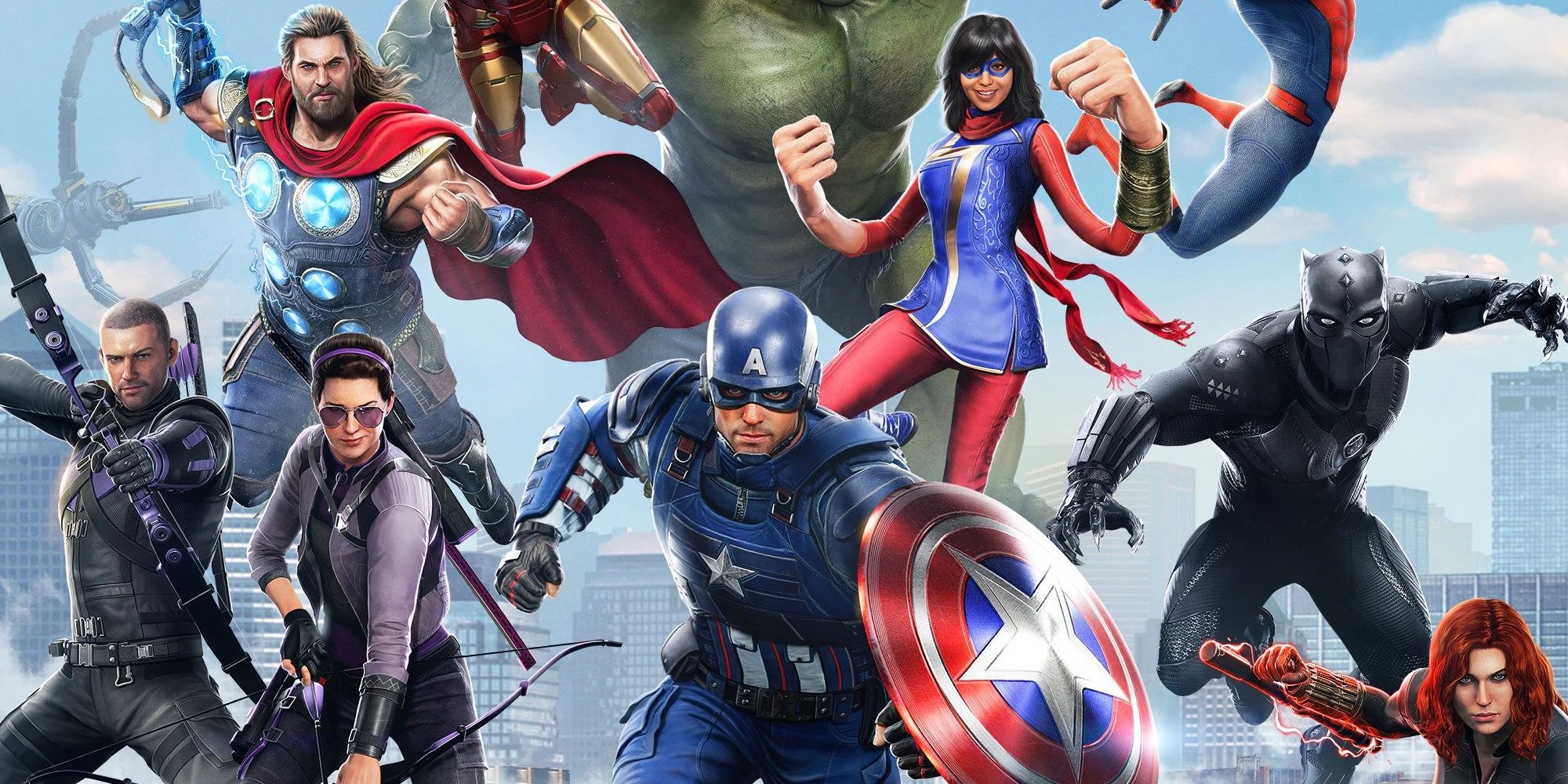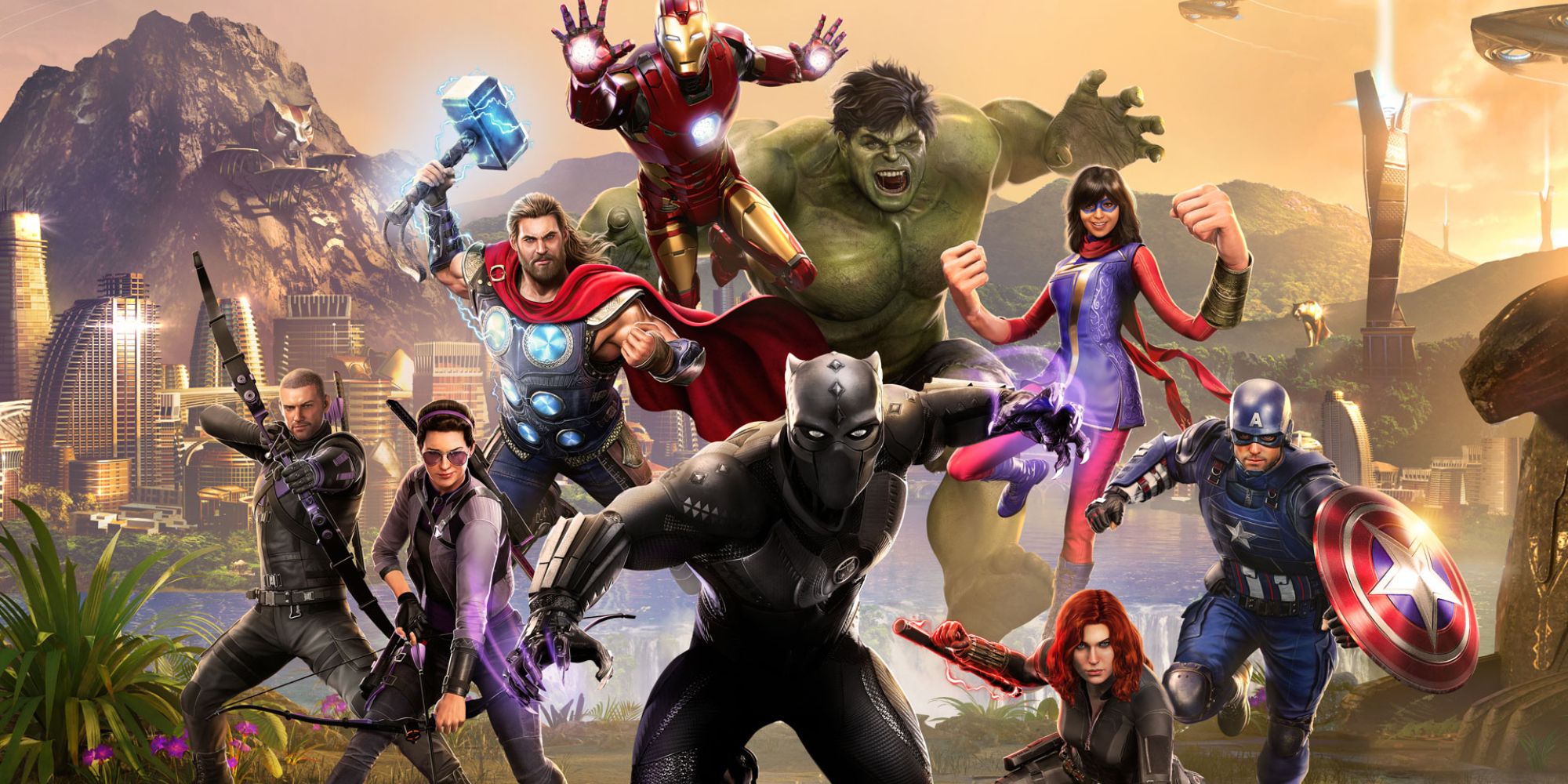Cinema is the medium video games most want to mimic. Though the time has passed when photorealism was rare and impressive, and being told 'this game looks just like a movie!' is no longer the highest compliment, games still want the prestige of Hollywood. Games want to be cinematic, they want to be blockbusters, they consider performances to be Oscar-worthy. We gleefully celebrate each year when The Game Awards' advertising showcase gets more viewers than the Oscars, and even though games are closer in length to TV shows, there's still a constant and direct comparison to movies. However, Marvel's Avengers has shown us just how far apart the two industries really are.
Regular movie tie-in games are a thing of the past thanks to development time expanding to the point where it is no longer feasible. The future of this genre is franchise tie-ins, as Marvel's Avengers was. It took five of the six Avengers we knew from the MCU and styled their looks and personalities from their cinematic counterpart, though they also added the as-then-unseen Kamala Khan and ditched Hawkeye until after launch. Ultimately it was unsuccessful, and Avengers is closing its doors. We're seeing this in other movie gaming projects too - Captain America and Black Panther are getting Marvel games, Star Wars games have been adjacent to the films for decades now, and Avatar: Frontiers of Pandora is not a recreation of any Avatar movies released or yet to come.
However, Marvel's Avengers also highlights a major difference between the industries - what it means to be too big to fail. In both industries, there are bombs. Babylon, one of the most bombastic movies of the year, grossed less than $30 million off a budget that was estimated to be over $80 million before an incredibly expensive promotional campaign. But the sorts of movies that Marvel's Avengers can be compared to rarely, if ever, fail. Every MCU movie has turned a handsome profit, to the point where Ant-Man and the Wasp making over $600 million off a $150 million budget was regarded as a disappointment. Avatar: The Way of Water, roundly mocked as unnecessary before it opened, just cleared $2 billion and isn't slowing down. Jurassic World Dominion, poorly reviewed as an overly long and convoluted finale to the series, made over $1 billion, and that's a movie even its fans admit are bad.
Gaming can rival these numbers with its biggest hits, sure. Red Dead Redemption 2 had an opening weekend of over $700 million in North America - Avengers: Endgame clocked in at $650 million. But when we get to the Ant-Man and the Wasp level games, things get trickier. Avengers is the most popular entertainment franchise on the planet right now. If Black Widow 2 is just Florence Pugh shopping for groceries, it'll still clear $500 million. Games have far more moving parts and are far more likely to get in their own way, and despite the franchise being too big to fail, Marvel's Avengers did. So did Gotham Knights. Gaming wants to be film but it cannot rely on the tricks movies use, and the longer it does, the more it ignores the unique charm gaming has.
As we move to cinematics and established IP, we lose sight of the agency and involvement gaming can give us. Tie-ins are not inherently bad (Spider-Man is one of PlayStation's biggest and best hits), and it is not only games that directly ape movies that fail. Cyberpunk 2077 might have sold through the roof initially, but has to be regarded as a monumental failure because of the historically broken state it released in which led to digital copies being pulled and refunds demanded in the hundreds of thousands.
Cyberpunk 2077 was the one exception to the 'no preorders' rule, the game christened as a masterpiece above all others before it even arrived. It was too big to fail. You might point to games yet to come, to the next The Last of Us, the next God of War, the next GTA, and consider those too big to fail too. Maybe they are the rare exception, but there is so much more that can go wrong in these cinematic video games, and when the first two especially just want to be movies you can play, it feels futile for games to grow more and more complicated to get more and more similar to movies, when there are so many more moving parts that set them up for failure. Games like Marvel's Avengers seem doomed from the start.



